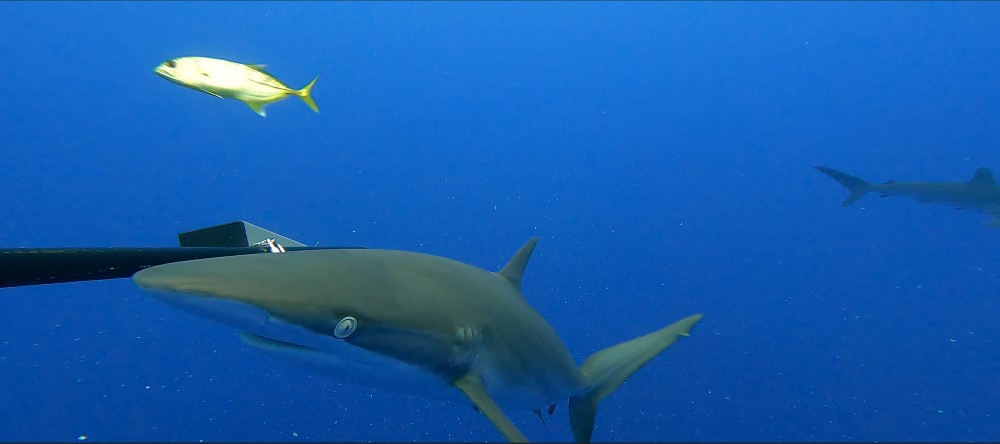- Research
PICRC Undertakes Pilot Study to Identify if Different Moon Phases Influence Fish Abundance and Diversity at FADs
Researchers from the Palau International Coral Reef Center (PICRC) are currently undertaking a pilot study at a fish aggregating device (FAD) to assess whether different moon phases influence the diversity and abundance of fish species. This project is using baited remote underwater video stations (BRUVS) to capture data which provides a permanent visual record of the different species encountered at sites. This survey method has not yet been trialed at FADs in Palau but is a common fish surveying tool around the world.
Fish aggregating devices (FADs) are floating objects used to provide structure in an open ocean environment. Pelagic fish are attracted to FADs for various reasons, including to feed on prey or as reference points for schooling. These FADs aim to attract commercially important coastal pelagic species to provide an alternative source of fishing to local communities.
Surveys commenced on the 31st of May and will continue throughout the summer months. To gain equitable data, the BRUVS are deployed two hours after sunrise, four times a month (first quarter, full moon, last quarter and new moon) for 3 consecutive months. This pilot study hopes to gain an understanding of fish composition trends across the different moon phases and to assess the effectiveness of the BRUVS method.
PICRC researchers are aiming to further monitor FADs in the future to gain more information on diversity, abundance, size and biomass of coastal-pelagic species and to understand the effectiveness of different FADs in Palau. The findings from this study can help identify if FADs have potential to aggregate pelagic species of commercial interest in the artisanal fishery zone of Palau. Differences between FAD structures around Palau could also highlight preferred aggregation sites.
PICRC contracted Mr. Hadely Renguul to assist on this project based on his knowledge and expertise as a local fisherman. PICRC acknowledges and thanks him for assisting our researchers to undertake these surveys. This research hopes to provide valuable insight into FADs and the role they play in enhancing livelihoods and food security in Palau.


